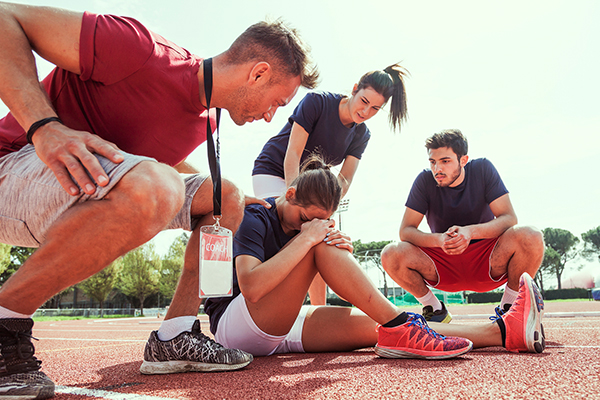
Sports injuries can disrupt more than routines—they can affect self-identity, confidence, and social connections. Athletes may feel isolated, anxious, or overwhelmed when they're unable to train or compete. It’s important to acknowledge these feelings as part of the recovery journey and address them openly. Here are some effective coping strategies to help you stay resilient and optimistic during the healing process:
Focus on Small, Achievable Goals: Instead of focusing solely on the big picture of recovery, set small, measurable milestones. This might include working on flexibility, range of motion, or strengthening surrounding muscles to support your injury. Celebrating these small victories can boost your confidence and keep you motivated.
Work with Specialists: It can be helpful to have a trusted team on your side, from orthopedic specialists to physical therapists who understand sports injuries deeply. This personalized guidance can ensure you're on the right track and give you peace of mind in knowing you're supported.
Utilize Visualization and Relaxation Techniques: Guided visualization—imagining yourself in a state of health and strength—can be powerful. Pair this with deep breathing exercises or mindfulness practices to keep your stress levels down.
Consider Therapy for Mental Health Support: Consulting with a mental health professional, such as those who specialize in sports psychology or stress and trauma counseling, can help you process emotions surrounding the injury. Therapists skilled in injury-related depression can provide coping mechanisms tailored to your experiences.
Explore Non-Surgical Healing Methods: Look into options such as physical therapy, and treatments like PRP (platelet-rich plasma) therapy if applicable, which can aid in healing without surgery. Focusing on these holistic approaches can give you a sense of control and hope for recovery.
Stay Engaged with Your Sport in Other Ways: Even if you're sidelined, stay connected with your sport by watching games, studying techniques, or supporting teammates. This can help you feel a part of the sports community and keep your passion alive while you heal.
Focus on Nutrition and Overall Health: Injury recovery isn’t just about resting the injured area. Ensure that your body is fueled with the right nutrients to aid in healing, and consider consulting with a dietitian to optimize your recovery nutrition.
It’s natural to feel down during such a tough period, but with the right strategies, you can build resilience and find strength through the process.
If you’re struggling with pain, stress, or feeling stuck in your recovery, book and appointment with Hinsdale Orthopedics at Munster. From personalized recovery plans to compassionate care, we're here to help you heal and return to doing what you love.
AUTHOR: Dr. Ronak Patel is a fellowship trained orthopaedic surgeon specializing in all sports medicine injuries for adolescents and adults, including knee, shoulder and elbow. Dr. Patel provides comprehensive care for the musculoskeletal system treating acute injuries in Munster, Indiana.


